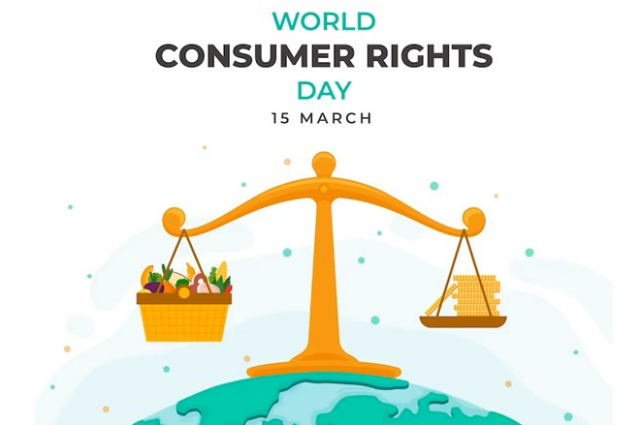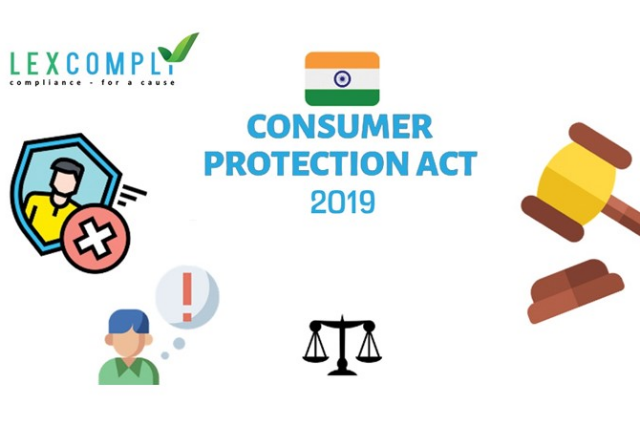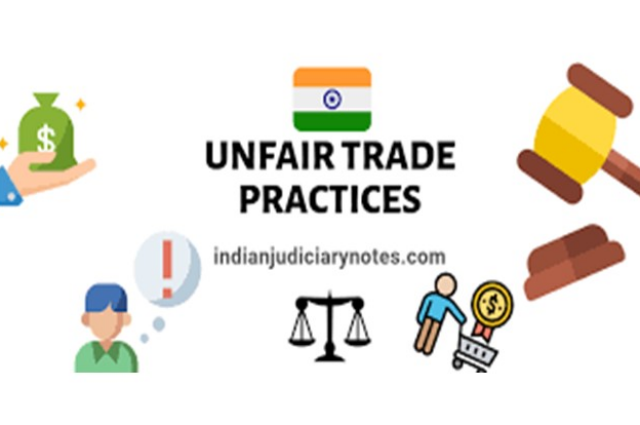World Consumer Rights Day is celebrated on March 15 annually as a means of raising global awareness about consumer rights and necessities. On this day, governments around the globe spread awareness about consumers’ rights and want. The day also aims to draw attention to market malpractices, which violate the rights of consumers. President John F. Kennedy was the driving force behind the creation of World Consumer Rights Day. He was the first leader in the world to explicitly address the United States Congress on March 15, 1962 regarding the consumer rights. World Consumer Rights Day was celebrated for the first time in 1983. Since then, it has been celebrated globally on March 15 every year.
Consumer Protection Act, 2019
Consumer Protection Act, 2019 has replaced the Consumer Protection Act 1986 because the three-decades-old act couldn’t solve the grievances of the modern market. Globalization, modern methods of production, changing technologies, and digitalization have changed the market's entire scenario. There are a variety of products coming into being so are new methods of misleading and exploiting the consumers. Therefore, this act is enacted to protect and promote the interest and defend the rights of the consumers. Provide quicker redressal to consumer grievances. It helps to educate the consumers regarding their rights and responsibilities and encourages them to defend themselves and take action against the manufacturer or any service provider for that matter, in case of exploitation, breach of trust, or negligence. Consumer Protection Act received the assent of the Honourable President on 9th August 2019 and the act came into force on 20th July 2020.
Who is a consumer?
Consumer Protection Act broadens the meaning and scope of consumers. This act was enacted by the government, taking into consideration the fastest-growing e-commerce and modern methods of buying and selling goods, online which includes teleshopping, direct selling, and multilevel marketing. As per section 2(7) of the consumer protection act, CONSUMER means any person who—
(if) buys any goods for a consideration which has been paid or promised, or partly paid and partly promised, or under any system of deferred payment and includes any user of such goods other than the person who buys such goods for consideration paid or promised or partly paid or partly promised, or under any system of deferred payment, when such use is made with the approval of such person, but does not include a person who obtains such goods for resale or for any commercial purpose; or
(ii) hires or avails of any service for a consideration which has been paid, or promised or partly paid and partly promised, or under any system of deferred payment and includes any beneficiary of such service other than the person who hires or avails of the services for consideration paid or promised, or partly paid and partly promised, or under any system of deferred payment, when such services are availed of with the approval of the first-mentioned person, but does not include a person who avails of such service for any commercial purpose.
It states that a consumer is a person who agrees to buy goods or any product or heir any service for consideration or on credit, or any system that permits him/her to pay in installments or use goods or services hired by someone else but with their permission. The person who buys goods or avails any service for resale or commercial purposes is not considered a consumer according to this act. The act has made the inclusion of offline as well as online transactions through electronic means or by teleshopping or multi-level marketing.
Defects in goods and deficiency in services
Goods and services are defined in the act. Goods mean a property that is movable in nature Food is also included as goods as per section 3(1)(j) of the Food Safety and Standards Act, 2006. services include facilities related to banking, insurance, transport, financing, telecom, etc. Services provided will be considered as service when they are rendered for monetary benefits, it should not be any free service.
Every consumer wishes to purchase goods that are good in condition and shouldn’t be defective. Defect means any default, imperfection, or shortcomings in purity, potency, quality, quantity, standard, or style of the goods produced by the manufacturer that is required to maintain.
Deficiency in its literal sense means inadequacy, fault, imperfection, limitations in nature quality style, and manner of performance which is required to be rendered as per specifications or in pursuance of the contract. Whenever there is any sort of deficiency in services the consumers are exploited. Any kind of negligence, omission, or commission of an act can cause injury to the consumer or intentionally withhold relevant information, that the consumer should be aware of.
Illustration: A customer went to a petrol pump to fill petrol in his car. But that concerned person negligently filled diesel in his car, which is an act of deficiency of service.
Misleading advertisement
Advertisement is a visual representation of any product or service that is made using light, sound, smoke, graphic designs, prints, electronic media, the internet, or a website. It makes marketing of any product, as people rely on them before purchasing or hiring any service. Online misleading and false advertisement is an important aspect included in this act.
Section 2(28) mentions any advertisement that gives a fake description of a product and service, gives a false guarantee or is likely to mislead the consumer regarding the quality, quantity, or nature of the product, conveys an expression constituting an unfair trade practice or deliberately hides relevant or essential information is a misleading advertisement.
Case law; M/S Emami ltd v. Nikhil Jain, where a complaint was filed against Emami, a fairness brand, named Emami Fair and Handsome for misleading advertisement. Its advertisement assured that there would be a change in skin colour from dark to fair within 3 weeks of its use. He was disappointed to see no difference despite using it regularly and filed a consumer complaint against the brand accusing them of playing with his emotions and misleading which cause a mental injury. The company was told to withhold that particular advertisement within 30 days and was ordered to submit Rs. 15 lakh as punitive damages and was asked to reimburse Rs.10000 as litigation cost.
Unfair trade practice
Unfair trade practice is defined under section 2(48) of the act. It refers to any malpractices of the trader or producer that is unscrupulous or fraudulent. It is mostly practised for promoting or maximizing the sale of the product by adopting unethical or deceptive methods of practice which includes: false representation of goods and services that are of particular standard or quality, falsely representing, renovated, revamped, old goods as new goods, making false or misleading advertisements regarding the usefulness of the product, representing goods and services that have sponsorship, approval, or affiliations but doesn’t have so.
Consumer protection act,2019 has broadened the definition of unfair trade practice, which now includes online manufacturing or providing spurious goods for sale or adopting deceptive practices for providing services.
Not issuing cash memos or bills of the goods or services provided.
Refusing to take back defective goods or discontinue deficient services or to reimburse the consideration taken within a stipulated period mentioned in the bill or within 30 days if there is no such provision mentioned in the bill.
Disclosing personal information of a consumer in a course of a transaction to any other person that is not prescribed by law.
CONSUMER RIGHTS
Section 2(9) discusses the six main rights mentioned in the consumer protection act. The main aim of this act is to protect the consumer against various types of exploitation that include defective goods, deficiency in services, misleading advertisement, and unfair trade practices.
Consumer rights include:
- Right to be protected against marketing of goods, products, or services which are hazardous to life and property. This right is concerned with pharmaceutical industries, food manufacturers, automobile industries to carefully test, examine and critically analyse the validation, guarantee, warranty of their products before marketing them.
- Right to be informed about the quality, quantity, potency, purity, nature, standard, and price of the goods, product, or services to protect them against unfair trade practices. This consumer right says that the consumer should have proper information about the products they are consuming.
- Right to be assured, whenever possible, access to a variety of goods, products, or services at a competitive price.
- Right to be heard and assure that consumer’s interest will receive due consideration at appropriate fora. This consumer right makes sure that no consumer complaint goes unheard, every consumer should get recognition from the appropriate forum. A consumer can approach any consumer court if their rights are violated. The respective court hears complaints and provide justice and assures that their interest receives due consideration
- Right to seek redressal against unfair trade practices or restrictive trade practices or unscrupulous exploitation of consumers. This lays down that the consumer has the right to seek compensation against unfair trade practices or any unethical exploitations or infringement of consumer rights.
- Right to consumer awareness. Consumers must be made aware of their rights and responsibilities so that they make proper choices.
Product liability
Product liability lies on the product manufacturer, product service provider, or product seller. Product liability actions or claim is brought by the complainant for any harm or injury caused to the consumer by the products or services. Section 84 to 87 deals with product liability.
Section 84 discusses that a product liability claim can be brought on product manufacturer if the goods or products produced by him have manufacturing defaults, are defective in design, does not follow the manufacturing specifications as prescribed, do not comply with the product warranty, or fails to provide appropriate instructions regarding the usage of goods, that can cause harm, if not used accordingly. He is held liable even if he was not negligent or fraudulent while explaining the warranty of the product.
A product service provider is held liable for product liability claim under section 85, if the service provided by him are deficient or inadequate in nature, quality; an act of commission or negligence or deliberately withholding information which may cause harm, does not provide adequate instructions to prevent the harm or any service which does not comply with the terms and conditions mentioned in the contract.
Section 86 describes product liability actions on product seller, who is not product manufacturer. He is held liable if he exercised control over designing, testing, manufacturing, packing, labelling of the product, modified or altered the product which became a substantial factor of causing harm if expressed the warranty of product which does not conform with the warranty made by the manufacturer of the product, failed to take reasonable measures in assembling, inspecting, maintaining product or didn’t provide proper guidelines or warranty of product manufacturer to prevent any danger.
Case law of claiming remedy: TT PRIVATE LTD v. Akhil Bhartiya Grahak Panchayat, where a pressure cooker exploded while using, by respondent’s wife, that left injuries on her right hand. She was awarded compensation of Rs.1 lakh and medical expenses amounting to Rs. 38000/- and the manufacturer was also asked to replace the defective pressure cooker.
There are certain exceptions to the product liability, which are explained under section 87 of this act, which are as follows:
- Product sellers would not be held liable if the consumer has himself altered or modified the product, that caused harm.
- A consumer can’t bring any product liability claim against any product manufacturer if he has given adequate instructions for the usage of the product if the product was meant to be used under an expert’s guidance.
- If the product was consumed by any consumer under alcohol influence.
- Product manufacturers would not be held liable for not providing sufficient instruction about a danger that is quite obvious or commonly known.
Offences and penalties under consumer protection act, 2019.
Sections Offences Penalties
Section 72(1) Failure to conform with the orders of District/State/National commission, Imprisonment for the term not less than 1 month can be extended up to 3 years or fine- not less than Rs. 25000/- extendable up to 1 lakh.
Section 88 Failure to comply with the order of CCPA under s. 20, 21. Imprisonment may extend unto 6 months or fine which may extend up to 20 lakh rupees.
Section 89 Providing false or misleading advertisement which is prejudicial to the interest of the consumer
For every subsequent offence Imprisonment which may extend to 2 years or fine which may extend up to Rs. 10,00,00/- Imprisonment which may extend to 5 years or fine which may extend up to Rs. 50,00,000/-
Section 90(1) Manufactures for sale, stores sell, distributes, or imports any product containing adulterant.
a. but does not cause harm or injury to the consumer Imprisonment which may extend to 6 months and fine which may extend up to Rs. 1,00,000/-
b. causing injury but no grievous hurt to the consumer. Imprisonment which may extend to 1 year and fine which may extend up to Rs. 3,00,000/-
c. amounting grievous hurt to the consumer. Imprisonment which may extend to 7 years and fine which may extend up to Rs. 5,000,00/- Such offence shall be cognizable and non-bailable
d. resulting in the death of the consumer. Imprisonment for 7 years which may extend to life imprisonment and fine which shall not be less than Rs. 10,00,000/- Such offence shall be cognizable and non-bailable
Section 91(1) Manufactures for sale, stores, sell, distributes, or imports spurious goods
a. causing injury not amounting to grievous hurt to a consumer. Imprisonment which may extend to 1 year and fine which may extend up to Rs. 3,00,000/-
b. causing grievous hurt to a consumer. Imprisonment which may extend to 7 years and fine which may extend up to Rs. 5,000,00/- Such offence shall be cognizable and non-bailable
c. resulting in the death of a consumer. Imprisonment for 7 years which may extend to life imprisonment and fine which shall not be less than Rs. 10,00,000/- Such offence shall be cognizable and non-bailable
Conclusion
The consumer is the king in the market. The Consumer Protection Act, 2019 is a modified piece of legislation that offers the consumers a great variety of benefits and rights to protect them from unfair trade practices, false or misleading advertisements, etc. The Act enables the consumers to seek alternative dispute resolution mechanisms and mediation so that the parties can opt for speedy and effective settlement of consumer disputes.
. . .
Reference:



